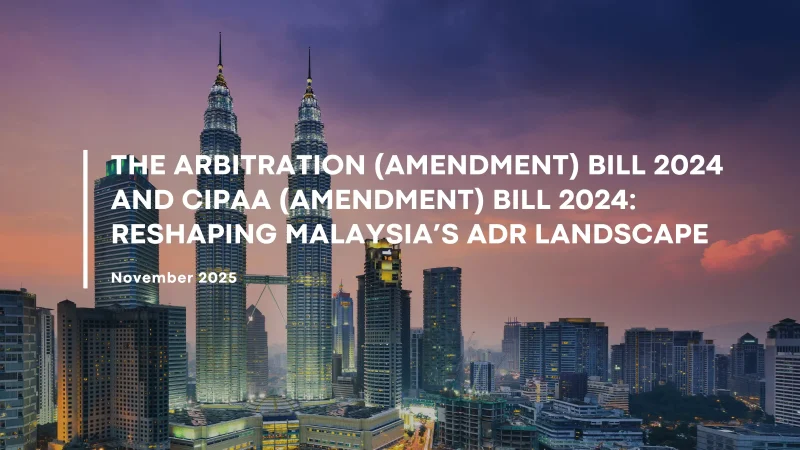Insights from Hodlnaut Interim Judicial Management
Introduction & Background
Hodlnaut Pte Ltd (“Hodlnaut”) provides a platform for its users to deposit and withdraw cryptocurrencies. Among other things, users deposit their cryptocurrency on the platform to earn interests. Through the platform, Hodlnaut users can also swap their deposited tokens with other tokens of equivalent value.
As a result of recent market conditions, Hodlnaut faced liquidity issues[1]. For this reason, Hodlnaut informed its users on or around 8 August 2022 that it would be “halting withdrawals, token swaps and deposits with immediate effect”. Subsequently, on 13 August 2022, Hodlnaut applied to Court for among other things, to be placed under interim judicial management (“IJM”).
On 29 August 2022, the Court ordered for Hodlnaut to be placed under IJM (pending the hearing of the judicial management application). The Court also appointed Ms. Angela Ee and Mr. Aaron Loh from Ernst and Young to be the interim judicial managers of Hodlnaut. Brief grounds regarding the said decision were published on 31 August 2022 i.e., in Re Hodlnaut Pte Ltd [2022] SGHC 209[2] (“Re Hodlnaut”).
This article discusses the key takeaways from Re Hodlnaut.
Should Hodlnaut be placed under Interim Judicial Management?
In its brief grounds, the Court revisited the criteria for making an IJM Order, as set out in a recent decision in Re KS Energy and another matter [2020] 5 SLR 1435. In particular, the applicant company must demonstrate that there is “a prima facie case for the making of a full judicial management order […] and usually there must be some danger to the assets of the company.” The Court reiterated that “[s]ome sort of urgency or exigency must be shown” (at [5] of Re Hodlnaut).
In Re Hodlnaut, the Court found it appropriate to place Hodlnaut under IJM because, on the evidence, the Court was of the view that the company’s “assets were probably in some jeopardy and that the directors and management of the [c]ompany would not be able to function without being liable for insolvent trading at this time” (at [7] of Re Hodlnaut).
Which IJM Nominees Should Be Appointed?
The appointment of the IJMs proved a more contentious issue in the present case. The IJM nominees were initially proposed by both Hodlnaut and Samtrade Custodial Limited (‘Samtrade’) (which the Court found to be a contingent creditor of Hodlnaut). Each party expressed “concerns about the independence of the nominees” (at [8] of Re Hodlnaut) from other party. In this regard, the Court observed that “discomfort might be felt by different groups of creditors about nominees from [Hodlnaut] and Samtrade” (at [12] of Re Hodlnaut). Therefore, at the conclusion of the initial hearing, the Court directed for the other non-parties (who were present at the hearing) to put forth further nominees.
Having considered the further nominees, the Court ordered for Ms. Ee and Mr. Loh to be appointed as the IJMs of Hodlnaut. In doing so, the Court held that “in the context of preserving and safeguarding assets where a large number of unsecured creditors are involved, it was best […] to have an appointment that would avoid as best as possible any concerns about independence” (at [12] of Re Hodlnaut). The Court also emphasised that its decision to appoint Ms. Ee and Mr. Loh “should not be taken as any slight by the other set of nominees” (at [14] of Re Hodlnaut).
In short, the primary consideration that the Court had in appointing the IJMs, was whether the said appointment would give rise to any concerns and appearance of the lack of independence. Nonetheless, the Court stressed that the determination of appropriate IJMs is a “fact sensitive exercise” that will vary from case to case. In this regard, the Court observed that: “This is not to say that any nominee by an applicant company or by a contingent or contested creditor will be rejected out of hand. It will be a fact sensitive exercise, with the court having to consider different factors from case to case” (at [13] of Re Hodlnaut).
PDLegal’s Partners Gerard Quek and Mato Kotwani, and Associate, Glenn Chua, represent a non-party creditor in Re Hodlnaut.
The writers are grateful for the contribution of George Grover, University of Tasmania, LLB Programme, Class of 2024.
[1] See Hodlnaut’s Press Release dated 8 August 2022: https://www.hodlnaut.com/press/hodlnaut-message-to-our-users.
[2] The brief remarks can be accessed here: https://www.elitigation.sg/gd/s/2022_SGHC_209.

